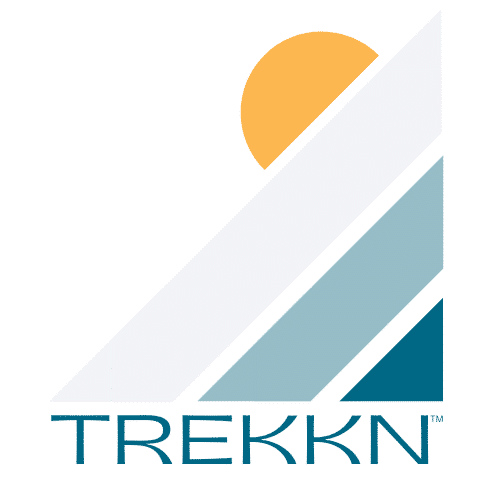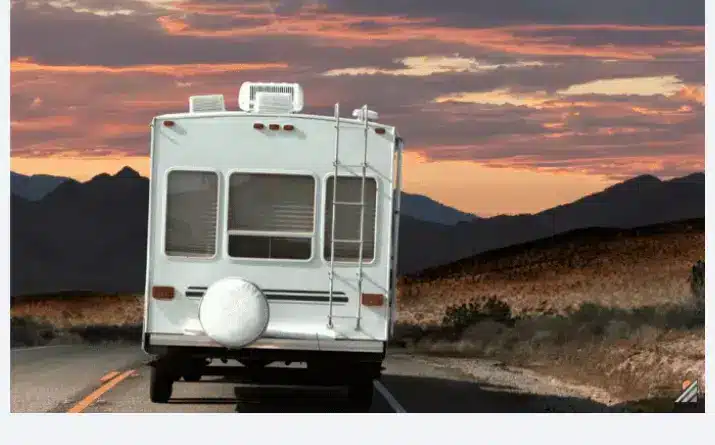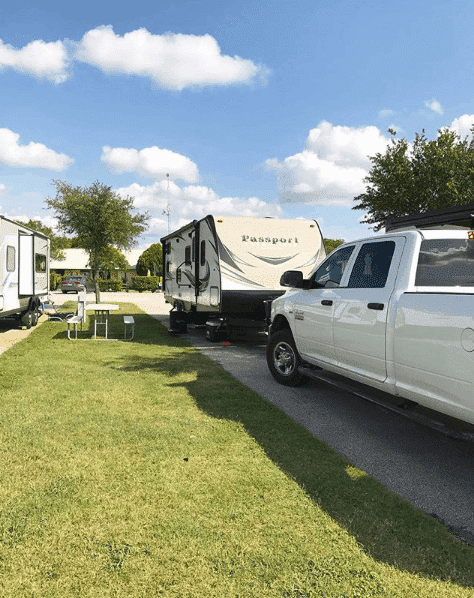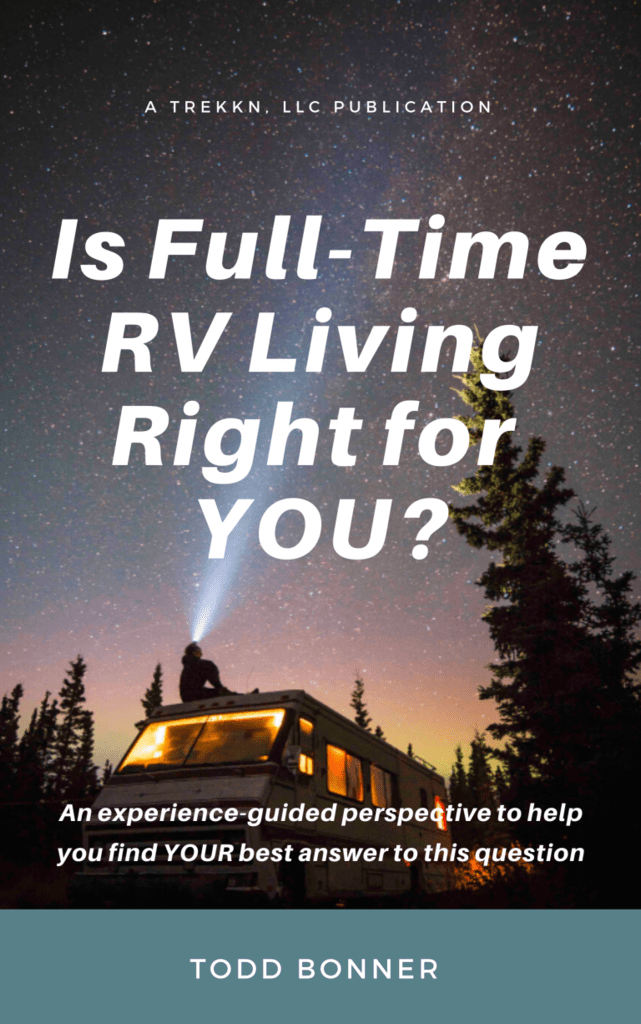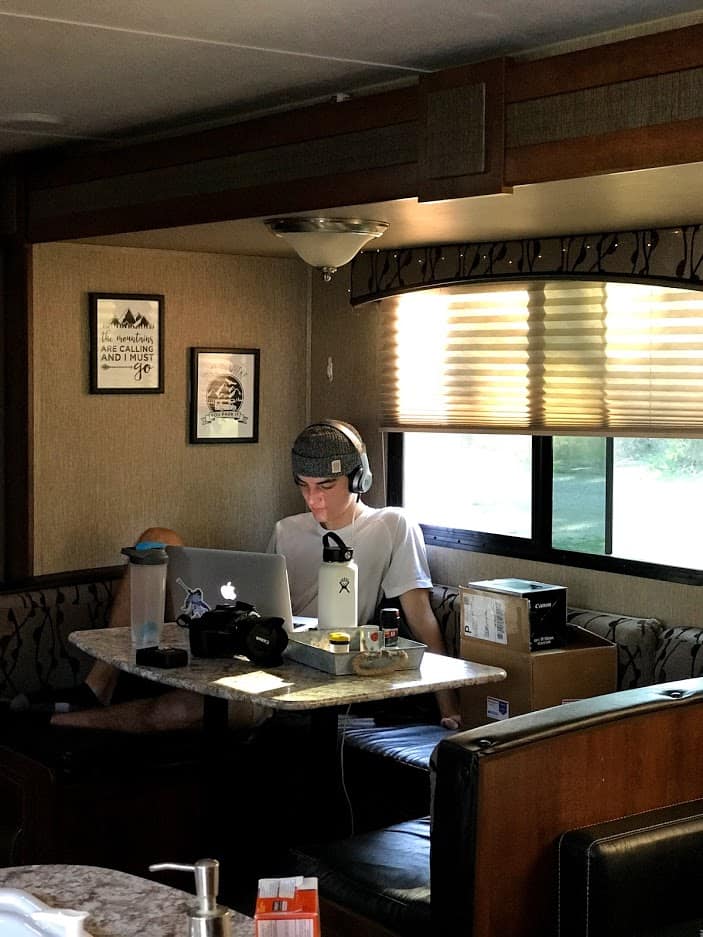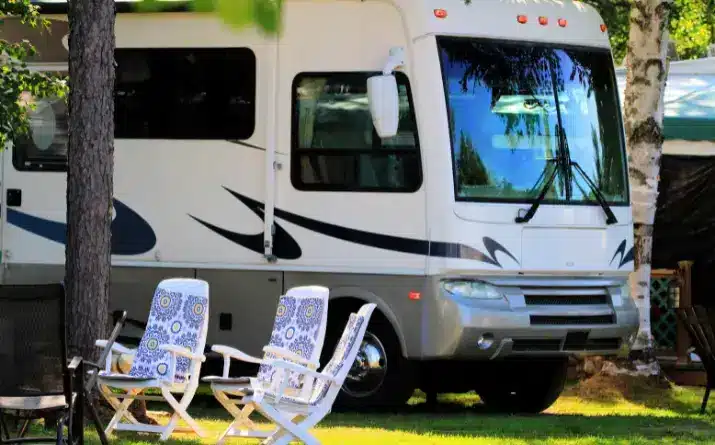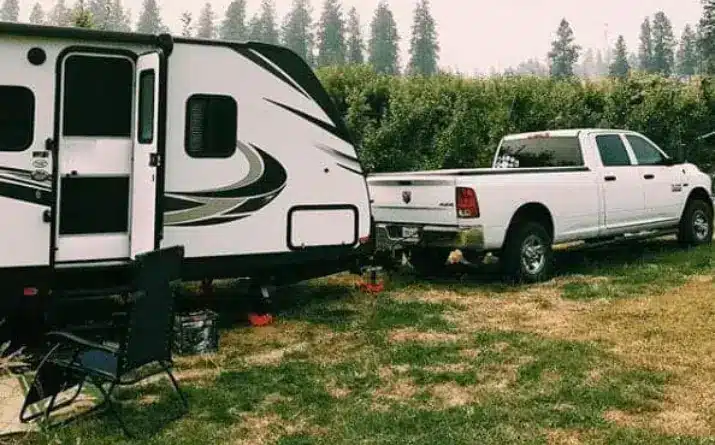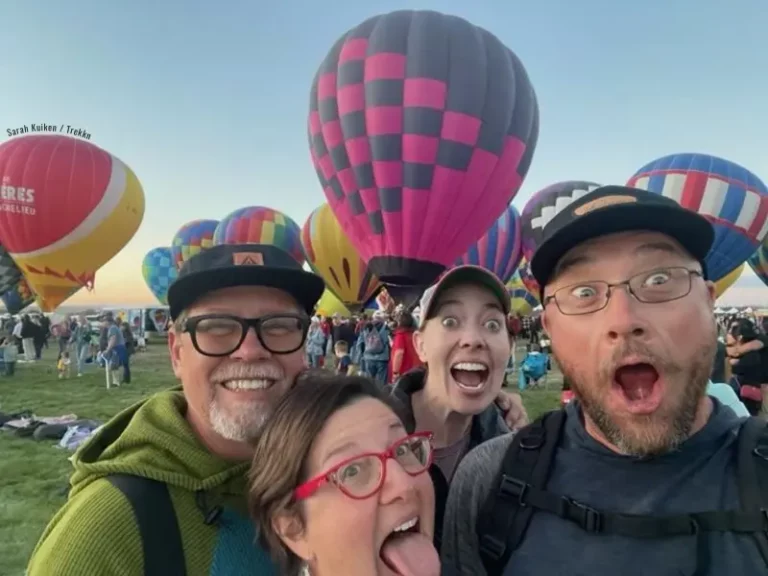Avoid RV Life Burnout: Find Balance on the Road
I’ve been living in an RV for over eight years. I’ve had three travel trailers, a campervan, and a motorhome. I have lived in driveways, RV parks, motorcoach resorts, state parks, county campgrounds, and on plenty of public land.
Every style of RV travel has its highs and lows. Over the years, I have experienced and learned all about RV life burnout.
In fact, part of the reason I’ve tried so many different styles of RV travel has been to avoid burnout and maintain balance.
My first trailer was too small. RV parks got boring after a while. You get the idea. Today it’s time I share my best tips for how to avoid the inevitable feeling of RV life fatigue.
Weariness From Full-Time RV Life
RV life means endless logistics, trip planning, and making reservations. I’m a professional travel planner and never imagined the logistical side of RV life would lead me to feel burned out.
I thought I would get tired of conserving electricity, taking showers without water pressure, or sharing a tiny space with my partner and dog. But no, I grew tired of the continuous, never ending planning.
Where are we going next? I got to the point where I really didn’t care where we were going next. The joy of the journey was gone.
But does that have to mean the end of RV life for me, or for you?
Let’s look at some of the common reasons RVers face burnout and some of the solutions that might help you find balance on the road in your own journey.
Planning Pressure and Decision Fatigue
When we started RVing, we stayed at RV parks for four to six weeks at a time. This allowed us to move at a manageable pace. But availability within RV parks near popular destinations we wanted to visit was competitive. Access often requires reservations more than a year in advance.
We could have a year’s worth of reservations perfectly coordinated, but if one thing changed or we needed to make a detour, it threw everything off.
We felt restricted by the reservations, like we had no freedom to change our minds or go with the flow.
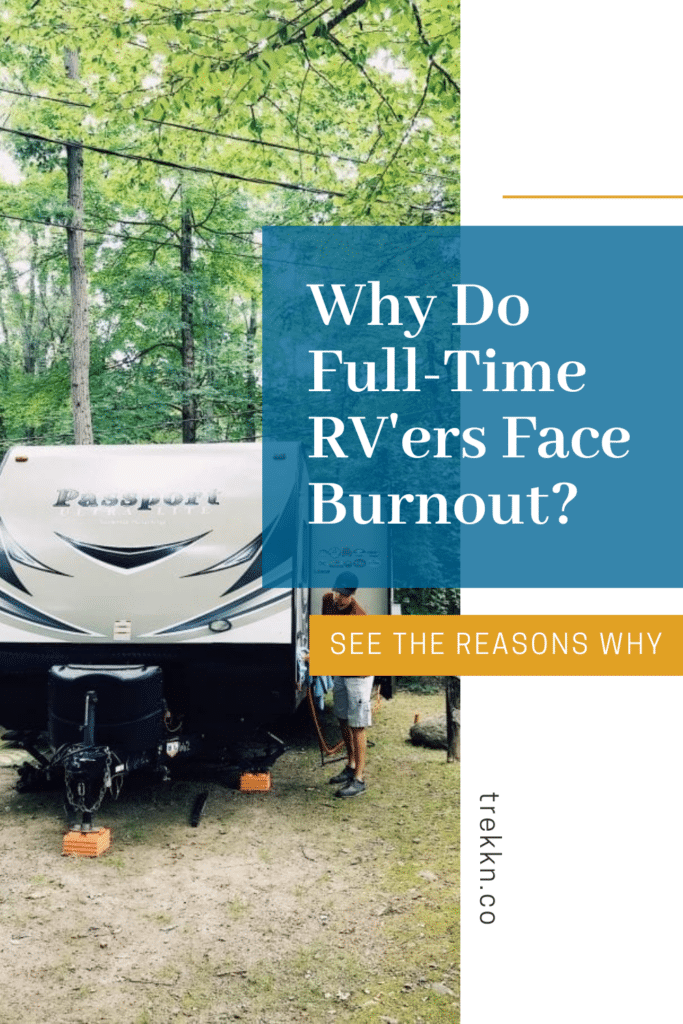
We Made A Big Change
So after one summer of difficulties with campground reservations and frustration about the tether of always needing to be plugged in, we decided to take the RV off-grid.
We went all-in and did a full solar install and started boondocking.
Faced New Logistics Issues
Boondocking solved all of the stress of coordinating RV park reservations because there are none! But as boondockers, we moved often and had additional logistics to figure out.
Where are we were going to park? Where can we get water? Where can we receive packages?
So whether you choose to stay in an RV park with hookups or to boondock off-grid, there is quite a bit of planning pressure that can lead to decision fatigue if you’re not careful.
This is one of the biggest reasons we’ve felt burnout in our many years on the road. Sometimes you just don’t want to have to decide where to go next, or anything else for that matter!
Unexpected Issues
It’s one thing when your car breaks down and has to go into the shop for a few days. It’s an entirely different story when your home has an issue and has to go into the shop.
What To Do When Your Home is in the Shop
Where will you stay? What will you do with all your stuff? It’s just a bit more stressful when it’s your home.
Lately, it’s been especially hard to get parts, with many essential RV and vehicle replacement parts on significant backorder.
So when the RV breaks (as they always do…be prepared), it’s a considerable amount of extra stress on everyone living in it.
And when there’s one problem followed by another, you may start to question if this life is for you anymore.
Working and RVing Feels Like 2 Full-Time Jobs
The full-time RV lifestyle used to be popular mostly with retirement-aged people. Today, with so many people working remotely, RVing while still working is now possible.
This is great if you can manage your full-time job and your full-time RV lifestyle.
But for many, with all of the research and planning that’s required to reach the next destination, RV life can feel like a full-time job in and of itself.
Keep in mind, you also have to maintain the RV in good condition. And take the time to drive to the next destination.
While I’m incredibly grateful to have been on the road in our RV for so many years while working, I can certainly see the appeal of RVing in retirement when there aren’t so many demands on my time.
If Possible, Split Up the Responsibilities
Many of the couples we RV with have a split household. One person doesn’t work so they can manage all the aspects of RV life, while the other partner still works a full-time job.
From my perspective, this is an ideal arrangement if you can make it work.
So Much to Do. So Little Time.
There’s just so much to do and see!
Being on the road, you want to take advantage of visiting all these amazing places and see and do as much as possible in each new destination.
However, if you and your travel companion both work a full-time job, you’re going to be squeezing in sightseeing after work and on weekends.
We love our RV lifestyle and wouldn’t trade it for anything, but sometimes it just feels like it’s all moving too fast and we need to call a time-out.
Getting from one amazing spot to the next can feel too rushed. It’s not as joyful to squeeze in an outdoor adventure between work and sleep.
Slowing Down Alleviates the Pressure
But if the alternative is not having a new view out your window every week, I think most of us wouldn’t trade it.
We’ve found that slowing down, however we can make that happen, alleviates some of the stress and allows us to enjoy more.
It’s easy to get caught up in the idea that you’re on an epic adventure and you need to see and do all the things.
Sometimes we feel guilty staying in to watch TV one night after work because we know there’s something cool we haven’t yet explored in our backyard.
If you can let go of the pressure to do everything (aka FOMO, fear of missing out), and be ok with the possibility of missing an experience here or there, I think it will increase your overall happiness.
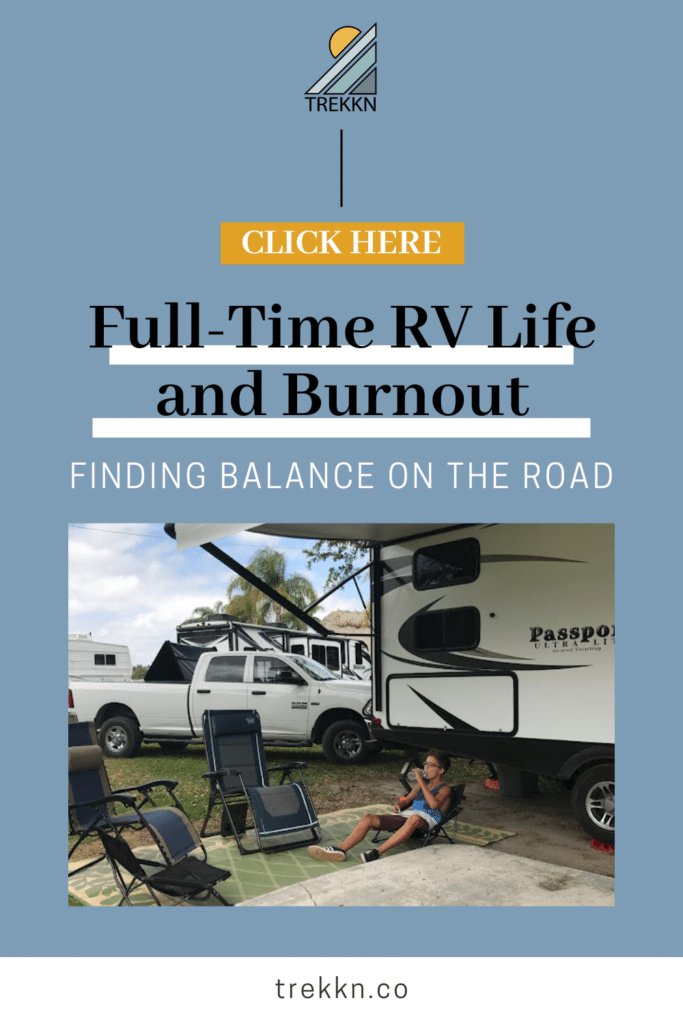
How to Resolve RV Life Burnout
If you find yourself in this burnout space, first thing you can do is to stop and look at the specific pressures that are contributing to your feeling of burnout.
Think through your options and discuss whether there’s a way for you to find balance on the road. If not, it’s possible that RV life is no longer right for you, and that’s okay too.
We always say that we’ll stop RVing when the stress outweighs the fun.
If you’ve reached that point, there’s no shame in settling down in a house that doesn’t have wheels…and daily logistical decisions to make.
If you’re not ready to give up RV life yet, here are some other solutions that might help you find more balance.
Slow Down
After boondocking almost exclusively for over a year, we knew we needed our time-out. Both of our jobs were busy, and RVing felt more like a chore than a benefit. Boondocking on public lands usually requires that we move every two weeks.
So to start slowing down, we decided to book one-month stays at Hip Camps and other non-traditional spots. This gave us some weekends back for exploration and relaxation, and it made a big difference.
If you like to stay at RV parks, many will offer great discounts for booking month-long stays, so it’s a win-win.
Believe me when I say that the most common piece of advice you will hear from those who have been on the road for a while is absolutely this nugget: Slow. Down.
That’s not a coincidence.
Take A Break
If the RV is feeling tiny and you just need some space to breathe, put the RV in storage and rent an Airbnb.
If cost is a major issue, check with friends or relatives who may have an extra room or couch. Discuss the possibility of staying with them for a couple weeks or a month. Having a set place to relax at the end of the day can be just the rejuvenating boost you need.
If it’s RV life and everything that comes along with it that’s wearing on you, just take a break from the RV altogether. You may find a renewed sense of excitement for the RV after just a few weeks away from it.
At the very least, it will give you some breathing room and a new perspective to consider next steps in your journey.
Establish A Home Base
The trend we see within our RVing community is that people are choosing a base so they have a familiar place to call home.
Some people may choose to buy an RV spot in a community, or a piece of land where they can park their RV. Others may choose to buy a home or a seasonal property.
There are plenty of options available when it comes to home bases. Be sure to explore all of them.
If possible, think through your options before you reach the point of feeling exhausted with RV living. This will help ensure that you don’t reach a “breaking point” and end up living with regrets.
Be Proactive to Avoid RV Life Burnout
There will always be ups and downs in life, whether you live in an RV or not.
For us, we try not to blame normal stressors on the RV. Instead, we consider ourselves lucky to have the opportunity to live this lifestyle. We even try to joke about how lucky we are when things break or when we hit our heads (again).
Maintaining a calm and positive attitude will carry you through many bumps in the road. And if a positive attitude isn’t going to get you through the burnout you’re facing, a break from the RV may be in order.
You can slow down, stop, go on vacation, or do whatever it takes to feel refreshed. In fact, building in breaks or slowdowns to your regular travel schedule may do the trick.
Maybe you’ll find that spending winters in one place is your key to finding balance and staying on the road. It has definitely worked for others!
Whatever it is for you, I hope that you continue to enjoy the great big adventure that is RVing.
Gratitude Wins the Day
Do your absolute best to feel grateful for the opportunity…even when it’s raining sideways and you’re stuck inside making logistical decisions.
Gratitude will always move you in the right direction! Remember to come back to that truth at the end of the day.
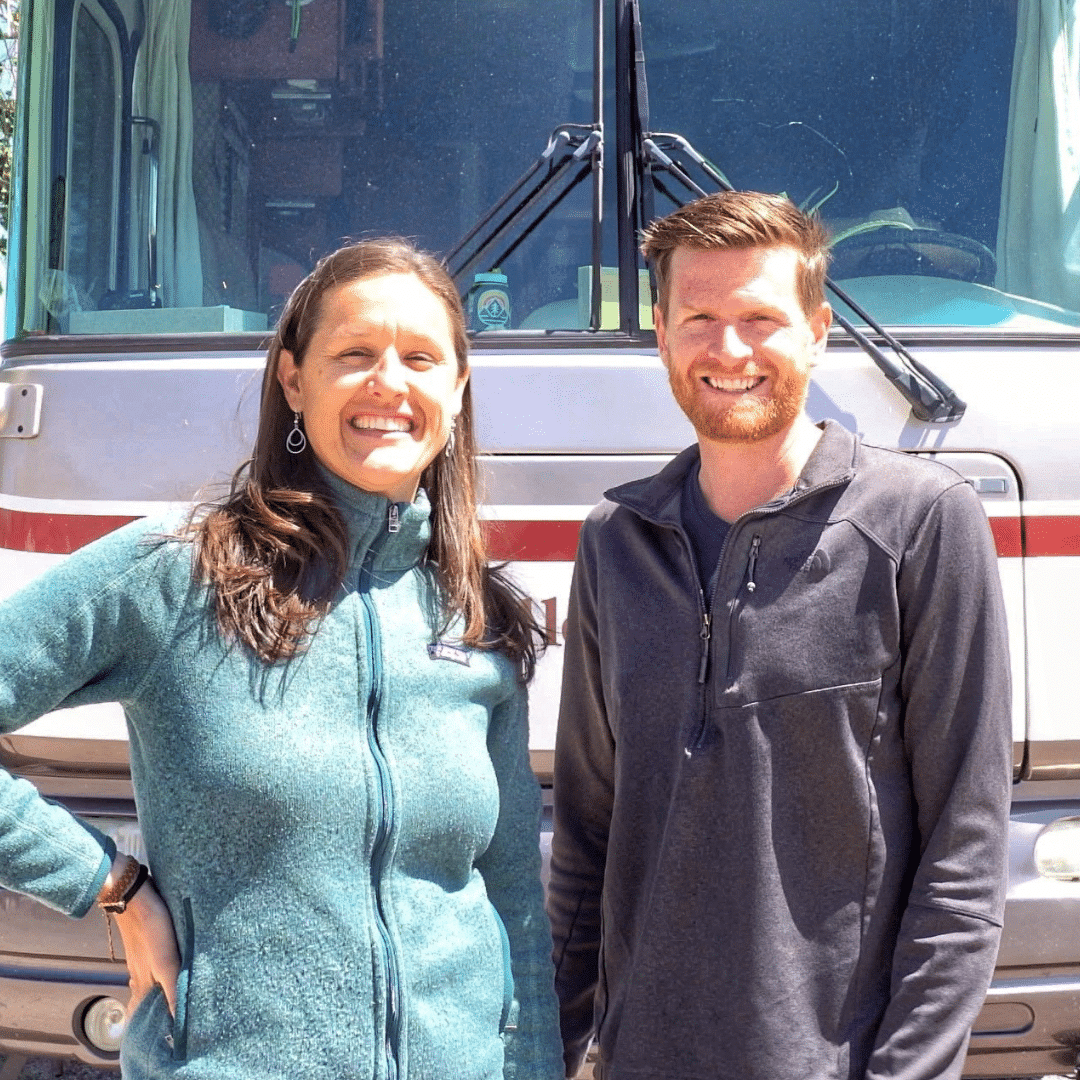
Kristen Bates lives & works from her RV, primarily boondocking off-grid. She owns and operates a women-led travel company, Legit Trips. Kristen loves to explore new places and inspire others to do the same. If she’s not typing away on her laptop, she’s off on an adventure- hiking, biking, or SUP boarding. You can follow her RV adventures @PerpetualMoves and learn more about her travel company at LegitTrips.com.
